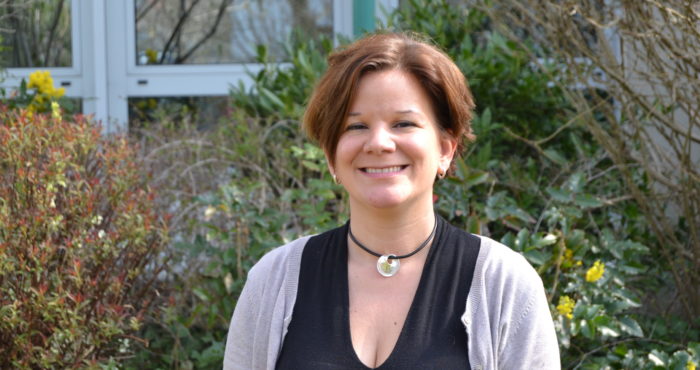The BBC Pure Hop Pellet: Efficiency + Flavor
A conversation with Dr. Christina Schönberger, Manager of Technical Sales at Barth-Haas, about the latest creation from a Barth-Haas and Boston Beer Company collaboration: The BBC Pure Hop Pellet™.

An interview with Dr. Christina Schönberger, Manager Technical Sales at Barth Haas Group
If you stopped by our booth at this year’s CBC, then you got a sneak preview of the latest creation from Barth-Haas: The BBC Pure Hop Pellet™. Yes, that’s BBC, as in Boston Beer Company, co-collaborator on the pellet and a driving force in its innovation and development. Also collaborating on the innovation was Dr. Christina Schönberger, Manager of Technical Sales at Barth-Haas. I recently caught up with Christina about the BBC Pure Hop Pellet™ and got at least a couple of pints worth of insight and information behind the pellet. So pull up a bar stool and listen in.
Haas (H): OK, let me start with the obvious. Haas makes the pellet but it’s called the BBC – Boston Beer Company – Pure Hop Pellet™. What’s that all about?
Dr. Christina Schönberger (CS): Overall, the hops and brewing industries are pretty collaborative, and Barth-Haas has always had a good relationship with Boston Beer. About twice a year, we would meet with them to brainstorm ways to help them develop ways to better use hops in their process. Boston Beer was a major contributor in the development of the enhanced pellet, so naming it gives them the credit they deserve.
H: That makes sense. So what about the other half of the name? What makes it so “pure”?
CS: Mainly it’s about efficiency and flavor. Regarding efficiency, a huge amount of hop loss occurs in brewing many craft beer styles, often with dry hopping. Problems with the separation of the vegetation component of the hops can lead to expensive downtime. And the hop vegetation absorbs a lot of beer, which contributes to the losses.
H: Kind of like letting the baby out with the bathwater?
CS: [Chuckling] That’s an interesting metaphor, but I guess you’re right. Boston Beer believes in using the whole hop in their process because they believe it adds many important flavor components to the final beer. A challenge was to develop a pellet that would break up and distribute effectively in the cold temperatures associated with dry-hopping.
H: How were you able to do that?
CS: Well, fortunately, we had great knowledge and experience in hops technology with Dr. Adrian Forster as part of the Barth-Haas Group. He was able to develop a process using sieving that allowed us to create a pellet with a finer and more uniform particle size. This helped in improving the brewing performance in terms of both processing and flavor.
H: So it was a win-win? You were able to get better disintegration of the pellet which led to less waste and down time. And at the same time, the hop flavor was not compromised.
CS: Yes. In fact, the Boston Beer brewers found that the improved pellets provided a higher level in hop flavor and aroma than was seen with the regular T90 pellets.
H: So does that mean they could use fewer hops to achieve the same flavor as before?
CS: They could. Or they could use the same volume of hops as before and create a hoppier beer. It’s up to them.
H: So do you make the BBC Pure Hop Pellet™ only for Boston Beer?
CS: Oh no. As I mentioned before, Boston Beer is very collaborative and along with Barth-Haas, we very excited to share this innovation with the rest of the brewing world. It will be fun to see what everyone does with it.
